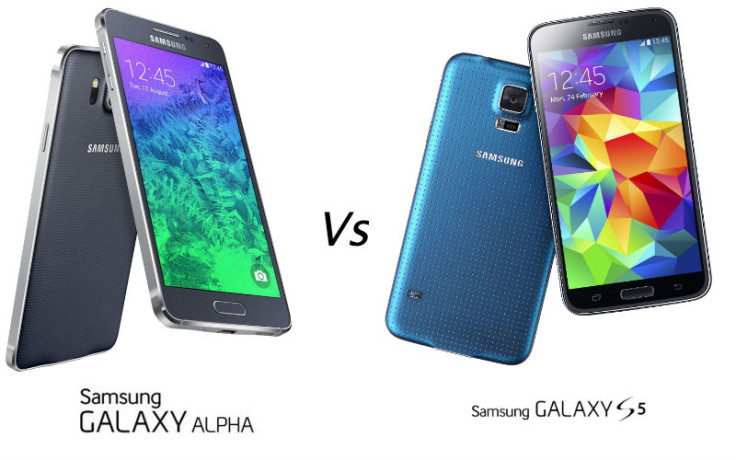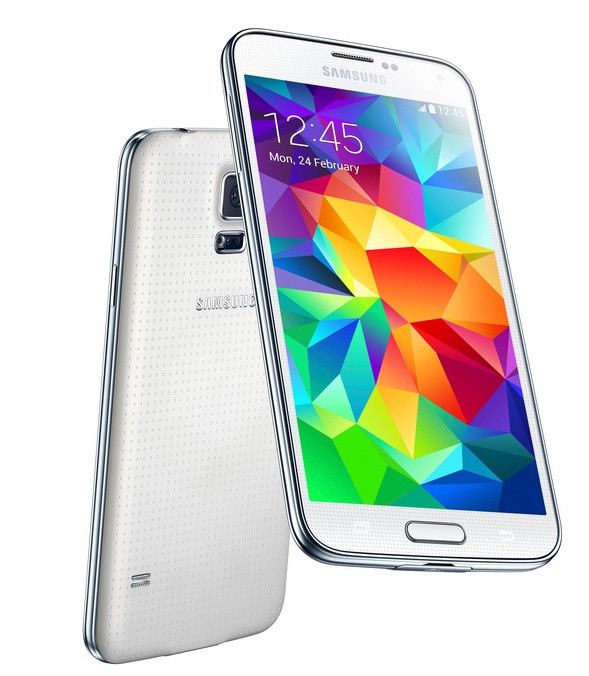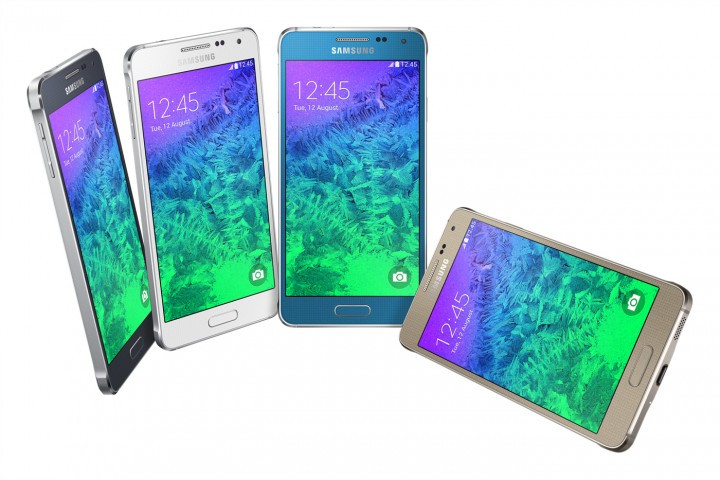Samsung Galaxy Alpha vs Samsung Galaxy S5: Which Should You Buy?

Samsung has taken the rather unusual step of launching a second premium flagship smartphone just months after what most thought would be the company's main smartphone for 2014 - the Galaxy S5.
On Wednesday, Samsung unveiled the Galaxy Alpha, its premium all-metal smartphone which will go head-to-head with the iPhone 6 which is slated to be unveiled in just a few weeks' time.
But aside from the use of metal instead of plastic what are the big differences between Samsung's two main smartphones? WE take a look at design, screen, hardware, operating system, camera and price to help you decide which to buy:
Galaxy Alpha vs Galaxy S5: Screen
All the talk ahead of launch, was that the Galaxy S5 would have a super sharp 2K resolution screen (2,560 x 1,440 pixels) that might even be curved. But as it turned out Samsung simply made the phone 0.1in bigger than the Galaxy S4, while retaining the Full HD resolution (1920 x 1080).

The Galaxy Alpha on the other hand has a smaller and lower resolution screen. The 4.7in, 1280 x 720 on the Galaxy Alpha should still be more than enough for most people however, and is in line with the size Apple is expected to make one of its new iPhone 6 models.
Galaxy Alpha vs Galaxy S5: Design

With the Galaxy S5, Samsung has retained the look and feel of the previous phones in the Galaxy series, continuing to use the plastic chassis seen in all previous models. The phone is thin and light, but lacks that feeling of quality.
The Galaxy Alpha is Samsung's direct challenge to those who say it only produces cheap phones. The all-metal body has obviously drawn comparisons with the iPhone, but the Galaxy Alpha is thinner (just 6.7mm) than the smaller iPhone 5s, and weighs almost the same (114g vs 112g).
Galaxy Alpha vs Galaxy S5: Hardware
In terms of internal hardware, the two phones are almost identical. Both come with Qualcomm Snapdragon, quad-core, 2.5GHz processors paired with 2GB of RAM.
Both also have a fingerprint scanner embedded in the home button for locking the device and potentially using it to pay for items through Paypal.
In terms of connectivity, both have Bluetooth 4, NFC, Wi-Fi AC and 4G compatibility.
The Galaxy S5 does have a heart-rate monitor on the rear, but that's so pointless it's actually a benefit that the Galaxy Alpha doesn't have it.
In terms of storage, the Galaxy Alpha comes with just one option (32GB) and no microSD card to expand that. The Galaxy S5 is available in 16GB and 32GB models and has a microSD card slot for expansion.
The Galaxy S5 also has a much larger battery (2800mAh vs 1860mAh) than the Galaxy Alpha.
Galaxy Alpha vs Galaxy S5: Software
Very little difference here. In fact none you would actually notice.
The Galaxy Alpha comes with Android 4.4.4 skinned with Samsung's own TouchWiz, while the Galaxy S5 uses a slightly older version of Android (4.4.2) along with the same TouchWiz interface.
Galaxy Alpha vs Galaxy S5: Camera

The Galaxy S5 has a new 16 megapixel sensor which allows for 4K video recording. It has also included a slow-mo mode; Selective Focus to allow you refocus a picture after taking it and Live HDR to see what a picture would look like with HDR mode on.
The Galaxy Alpha comes equipped with a 12 megapixel sensor along with the Selective Focus and live HDR features from the Galaxy S5.
However with a lower megapixel count, it's likely the results from the Alpha won't be as good as the Galaxy S5.
Galaxy Alpha vs Galaxy S5: Price
The Samsung Galaxy Alpha has not been given any official pricing yet, but retailer Clove has it priced at £499 on pre-order, which is slightly more expensive than the Galaxy S5 (£466) costs on the site at the moment, but is cheaper than the S5 was at launch (£550).
While all networks in the UK are likely to carry the Galaxy Alpha, none have revealed pricing of the handset yet.
The Galaxy S5, which was launched on the market in April, is available for £28-per-month with no up front cost on a 24-month contract.
© Copyright IBTimes 2025. All rights reserved.






















